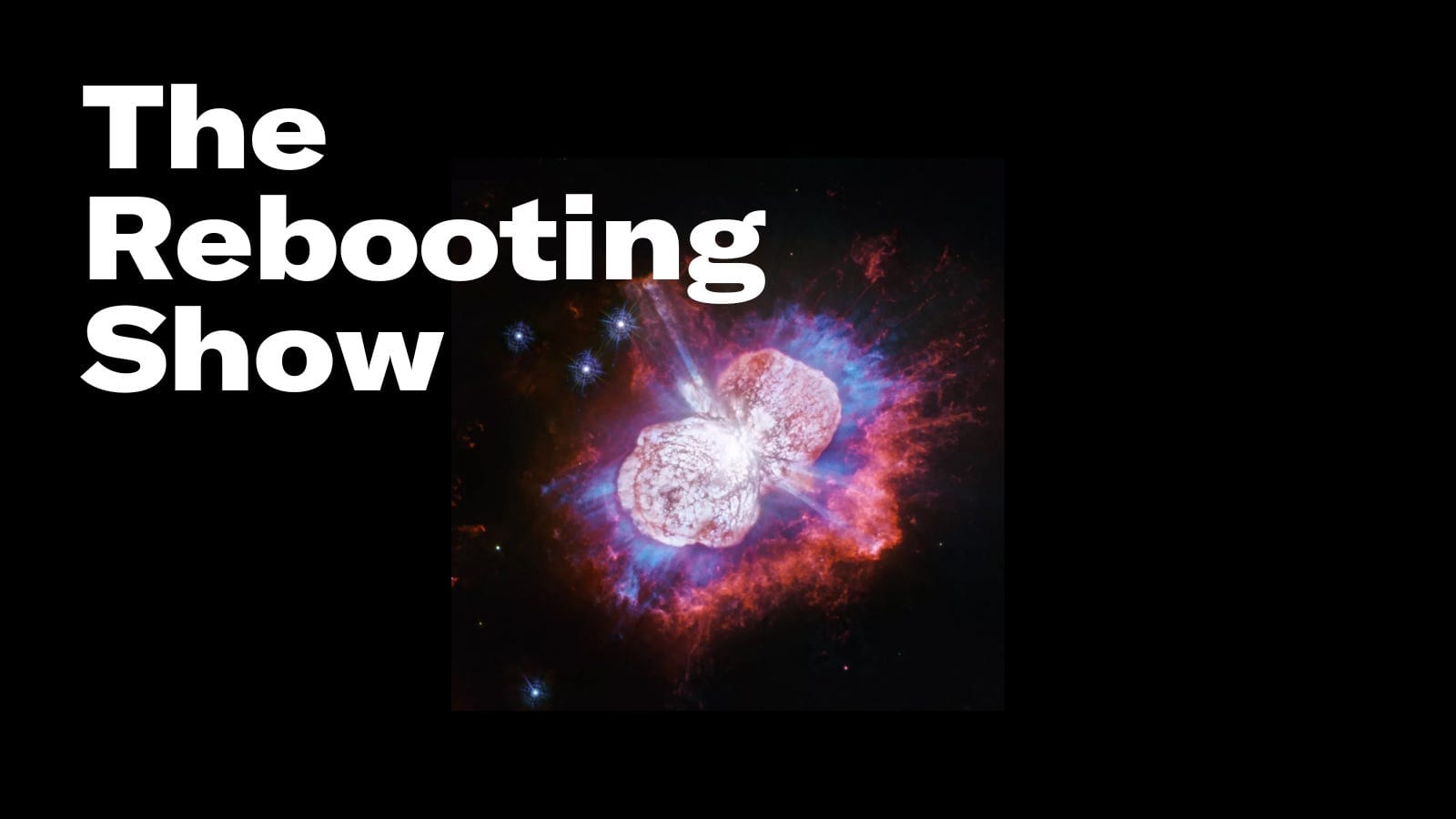The triumph of DC media
Political media is thriving

Quick reminder: Send me a note with things you like and what you’d like to see more. I’m eager to get feedback as I figure out the next step for The Rebooting. Hit reply or send me an email: bmorrissey@gmail.com. This week:
- Cox’s $525 million deal for Axios continues a hot streak for Washington DC media
- On The Rebooting Show, I spoke with Litquidity, the pseudonymous head of a budding meme media empire
- The newsletter boom is ending and other recommendations
If you haven’t already subscribed, sign up for free to receive The Rebooting every Tuesday and Thursday.

The triumph of DC media
In the late 1990s, I spent two years living in Washington DC, working at a speechwriting firm. I remember Washington as a strange place where men wore french cuffs and typically had “me walls” showing them doing “grip and grins” with political leaders. It was ludicrous but served a purpose: Proximity to power was everything in Washington.
As luck would have it, that proximity is more valuable than ever, thanks to the expansion of the federal government, which is now more than double the size it was when I left in 1999. That’s made the influence industry even bigger – and improbably made DC arguably the most vibrant publishing market – and beyond politics with Industry Dive’s sale for $525 million. Consider the past year for DC media companies:
- Axel Springer paid $1 billion for Politico
- Cox bought Axios in a deal valued at $525 million.
- The Hill was bought for $125 million last year
- Punchbowl, staffed by Politico alums, is off to an impressive start with over $10 million in revenue its first year.
- The Dispatch has accumulated 30,000 paying subscribers
- Grid News was backed with $10 million in funding.
- Semafor, backed with $25 million, is focused on Washington as its key market for launch
Much of the vibrancy of this market is based on the lucrative niche of corporate responsibility advertising that continues to grow. When I lived in Washington, this was a small compliment to lobbying budgets, consisting of ads in sleepy and small-circulation publications like Roll Call and The Hill. The category has exploded. What’s more, it could be the only advertising category where Google and Facebook aren’t the competition but two of the largest, if not the largest, customers, as Peter Kafka pointed out earlier today after annoyingly moving up his publication day. On any given day, one of those two companies will be the presenting sponsor of at least one DC media publication.
It’s another example of the value of focusing on power audiences — and how advertising, if geared to a hard-to-reach audience, remains a powerful tool for publishers. This rich niche strategy has its drawbacks – as Jay Rosen pointed out, “the rulers of empires will be kept well informed” – but it’s also a testament to how publishing has moved on from the scale era of trying to be everything to everyone. Instead, the playbook is to find a valuable audience segment and go deep.
The Axios deal is rich: 5x revenue despite Axios not turning a profit this year in a market with depressed asset prices of all stripes. That’s despite Axios not, in my mind, fully nailing (yet) its paid strategy, certainly not anywhere near what Politco pulled off with Politico Pro, and its big bet on a software offshoot not being included in the deal. Cox not wanting the software business – Axios HQ is licensed to companies wanting to use “smart brevity” for its internal comms – backs up recent guest on The Rebooting Show Joe Marchese’s pessimistic view of media companies building out tech.
That said, Axios got a lot right, such as finding the balance between putting individuals at the forefront of an institutional brand, betting on original journalism, smartly using newsletters and owning “smart brevity” as a signature format, even if all the exhortations to “be smart” get a bit tedious. Axios CEO Jim VandeHei, who in the early days of Axios warned of publications falling prey to the “crap trap,” put the hopeful lessons from Axios’ success well to the Times: “Chase a loyal audience with quality information, you can flourish.”


How Litquidity memed his way to a $2m media business
One of the reasons I’m optimistic about this period of publishing is we’re starting to see new brands built in completely different ways. Litquidity is a great example of that.
Begun as a meme account in 2017, Litquidity has amassed 1 million social media followers across Instagram, Twitter, LinkedIn and TikTok, specializing in the dark arts of “dank memes” that poke fun at the weird world of finance. The account, run pseudonymously by a former trader who goes by Lit, has spawned a daily news summary email (Exec Sum) with 160,000 subscribers, podcast (Big Swinging Decks), investment fund, merch and more.
Lit joined me on this week’s The Rebooting Show to discuss how Litquidity came about and how he sees memes as the top of the funnel for an integrated $2 million business. Some key takeaways:
- Find underserved audiences. The world is not short on finance news. But what Lit found as a young investment analyst is that little of the coverage captured the experience of being in the (well-compensated) rank and file of finance. “One thing that I felt was lacking was real insider baseball-type humor,” Lit said. “You look at CNBC or Bloomberg, it's probably people who aren't insiders that are reporting on the news or talking about the stock markets.”
- Memes are top of the funnel. Litquidity began as a meme account, attracting advertisers as its revenue source. But Lit felt that could only go so far – “I don't think they're like the highest value monetization paths to go through because you'll saturate your audience with ads, and people hate ads” – so he spun off Exec Sum, a newsletter that pithily summarizes the days finance and markets news. And more importantly, provides valuable surface area for high-value ads. “I really thought of how can I provide value to my audience in a way that would also make sense monetarily.”
- Publishing and investing mesh. Like Packy McCormick and Anthony Pompliano, Lit sees the opportunity to use his publishing reach as a way to expand his investing by raising a fund. Eventually, he sees Liquidity as more of an investment fund with a publishing arm rather than vice versa. “That's how I want that to be viewed going forward as I continue to build out the credibility and the track record.”
- Expanding beyond a personal brand is hard. Recently, Litquidity lost its “only employee” – there are a handful of part-timers – when Mark Moran split to focus on an investor relations play, Equity Animal. Expanding a media company tied to a person, even one who uses a pseudonym, is tricky. “One of the things that I found difficult was having the entire brand being ied by my humor and my voice,” he said. “If you start to introduce other creators or elements who don't fit that, then it starts to dilute that brand.”
Check out the episode on Apple, Spotify or Anchor.

Recommendations
The newsletter boom is officially ending when there’s a third trend piece saying the newsletter boom is ending. Last week, Peter Kafka checked for a decline and now Steven Perlberg finds wobbles. I’d say it was never really much of a boom and is just moving into a new phase of rebundling. Either way, building anything from scratch, particularly solo, is tough – and take a long time.
But many are pulling it off. Tangle, a non-partisan politics newsletter, is now three years old, boasting 6,500 paying subscribers and doing $30,000 a month in recurring revenue. Next up: editing out the “ad-free” part of the newsletter description. I think a better newsletter trend story is those coming around to diverse revenue models vs only subscriptions.
The weird economy is hard to figure out – maybe the Fed should track vibes too. One thing is for sure, uncertainty about future conditions tends to make businesses ease up on discretionary spending, and advertising falls into this bucket. But like the broader economy, there are many nuances, since lumping in The New York Times with streaming businesses is inexact.
Finally, a good reminder to appreciate the effort vs simply focusing on the result. Marge Hickman is a 72-year-old ultra runner who has finished the brutal Leadville 14 times but not in the past decade. She keeps after it, though.

Thanks for reading. If you’re interested in reaching publishing industry decisionmakers, consider getting in touch about a sponsorship. (Here’s more info on sponsorships.) I’ve worked with some great companies to date, and I’m obviously eager to expand that group. I think business media is somewhat unique in that the sponsorships are often additive to the product. Makes it easier (and more effective). My email is bmorrissey@gmail.com.




